How access to water turned my life around
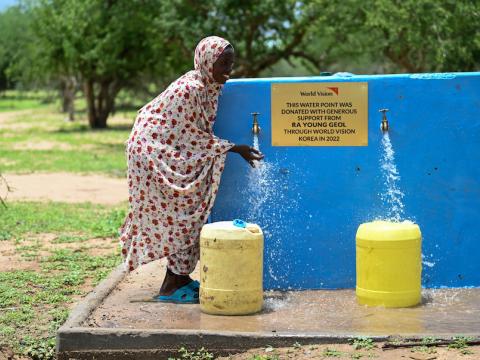
By Peter Mwaura, Communications Specialist, World Vision Kenya
Habiba and her three children hail from a small village tucked away in the outskirts of Habaswein, situated in Wajir County, Kenya.
The family, just like many others in the community, has borne the brunt of water challenges worsened by climate-change-induced droughts in the area.
This has brought immense suffering to Habiba. Currently, she shoulders the responsibility of taking care of her children single-handedly, since her husband left a year ago in search of water and pasture for their livestock. He never came back.
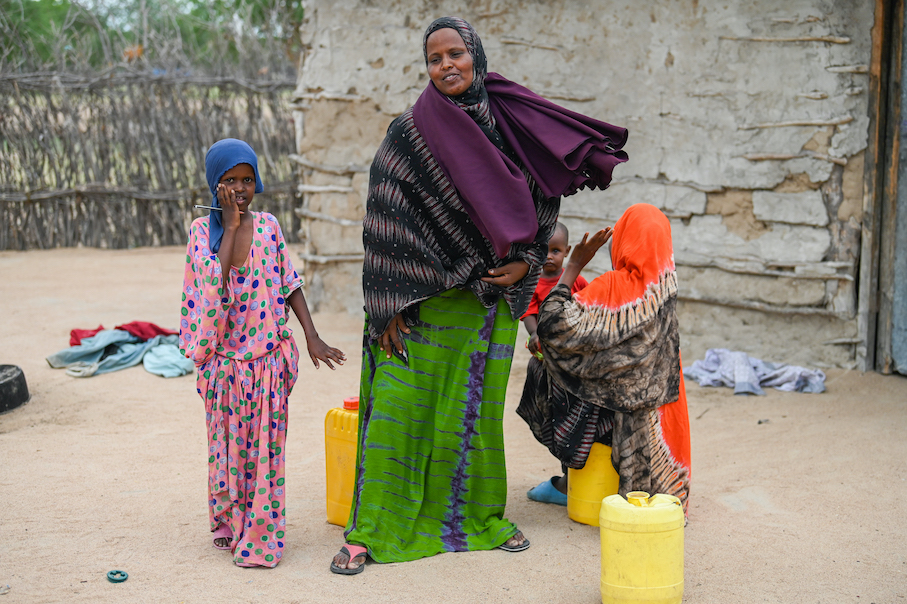
“When my husband left, I felt helpless because he was the breadwinner of the family,” she says.
As if that was not enough, Habiba lost the few animals she had – five goats and a camel – due to the drought. Her children were also unable to go to school as they had to spend most of the day looking for water.
The situation eventually changed for good in December 2022, after World Vision in partnership with the County Government of Wajir, implemented a transformative water project worth over 10 million Kenyan Shillings (711, 234 US Dollars) in Habaswein that serves thousands of people – children and adults- in the area where Habiba lives. It is known as the Abakore Water Supply System.
The project comprises of a borehole, an elevated steel tank (5,776 cubic metres), six water dispensing points and a two-kilometre water pipeline network.

Habiba notes that she vividly remembers the day that water ‘flew’ from the taps near her home.
“I couldn't believe that the water I had been searching for, walking far away for so many kilometres, was now here. This felt like a miracle,” she says.
According to Habiba, the water has transformed her life and improved the well-being of her three children – Fatuma, Jamila and Adi. They are aged 14, six and one respectively.
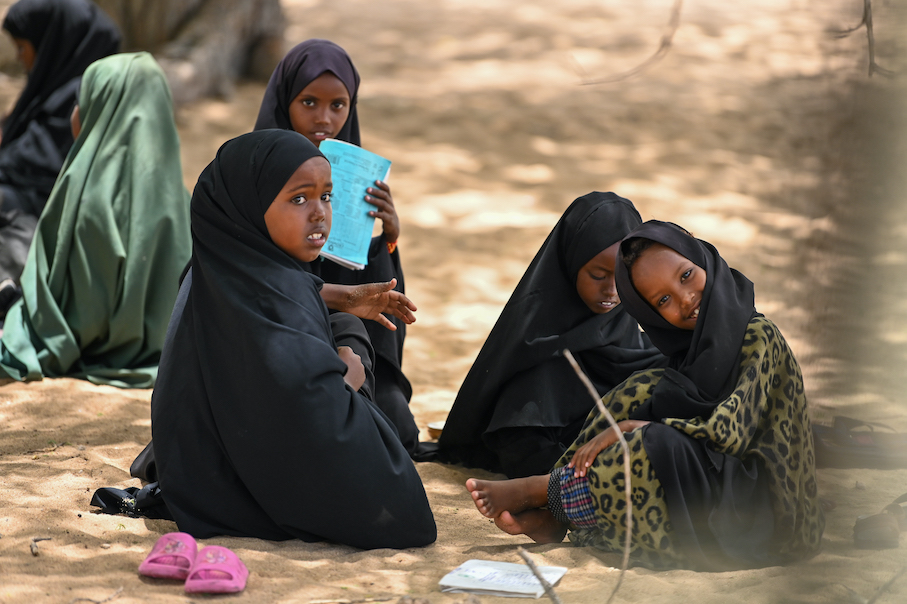
“I now have sufficient time on my hands to work and get some money to feed my children. This is possible because I no longer walk for miles in search of water. In addition, the situation at my homestead has become better as I now have enough time to interact with my children and help them solve any challenges they may be facing,” she states.
Thanks to the water project, Habiba got access to irrigation water. This enabled her to start a kitchen garden after receiving training on good agricultural practices from World Vision.
“We used to rely on wild fruits to complement the little food I could afford. Sometimes we would just have a single meal a day or sleep hungry. Now there is enough food at home, thanks to the kitchen garden. My children are healthy as they eat nutritious food varieties all the time,” she says.
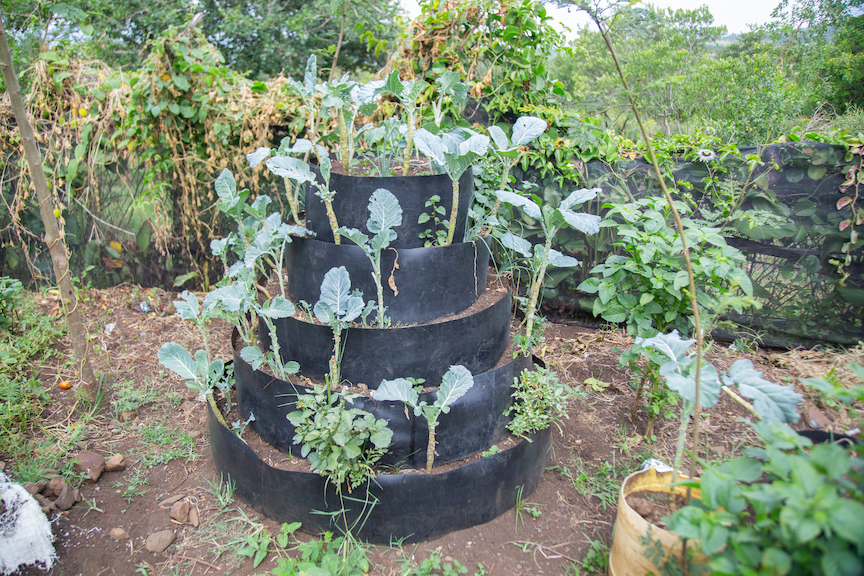
Aside from improved household food security, Habiba also generates income from the sale of surplus produce from her farm.
These finances enabled her to purchase livestock, which has replenished the animals that had earlier died, due to the prolonged drought in the area.
The water project has also gone a long way in improving the hygiene and sanitation standards in Habibah’s home, as well as neighbouring villages.
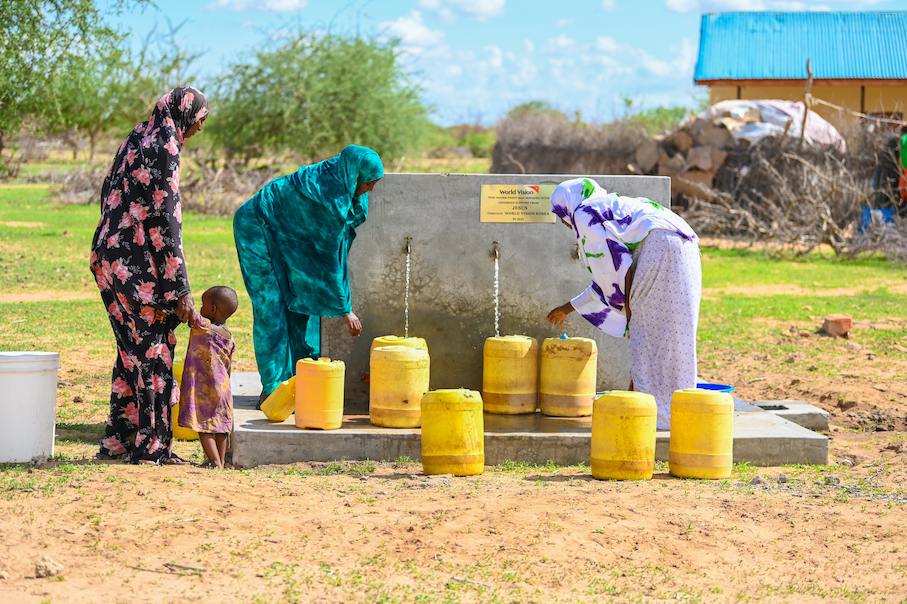
“I am happy that the water we rely on is clean and safe. We also wash our hands frequently with soap and water, and ensure that the house is clean. As a result, my children - especially the younger ones - no longer get sick from diarrhoea and stomach aches,” she notes.
Habiba’s eldest daughter, Fatuma, has also gone back to school and can concentrate fully in her studies. Gone are the days when she was forced to miss school due to the water challenges in the community.
“Fatuma is one of the best students in her class, both in terms of performance and discipline. We are glad to have her back in school, as well as many other children. I am therefore grateful to World Vision for tackling the water challenges we used to face in this community. I can see that the school enrolment is improving drastically and this makes me very happy,” notes Mr. Abdullahi, the headteacher of Fatuma’s school.

According to Habiba, the water project in her community has given her hope for a better tomorrow.
“The departure of my husband, due to the water challenges brought me so much grief. But this new water project has given me a reason to smile,” she says.
Cumulatively, World Vision has implemeted a total of 16 water projects in the Habswein area of Wajir County, Kenya, at an estimated cost of 40 million Kenyan Shillings (28,450 US Dollars).